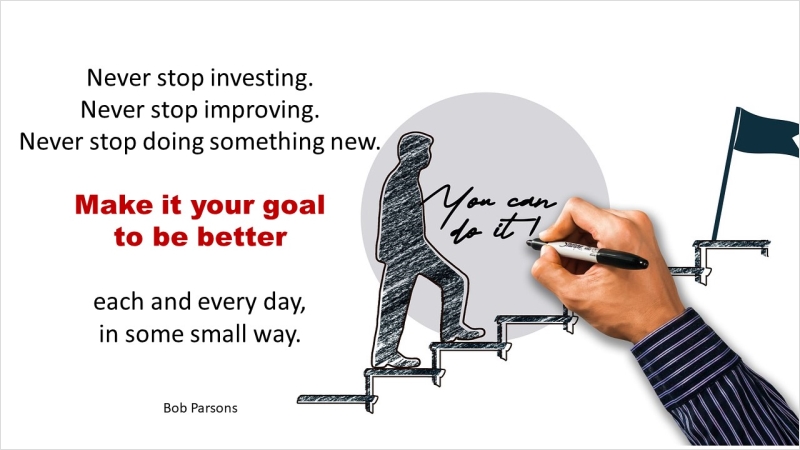HAVE YOU EVER HAD TROUBLE ADVANCING IN YOUR PERSONAL OR PROFESSIONAL LIFE because you felt stuck in a rut? It’s easy to become accustomed to the status quo, fall into the trap of complacency, and refrain from taking chances or changing things up. But what if I told you that a straightforward yet potent idea from Japan called Kaizen holds the key to releasing your full potential?
What is Kaizen?
The Japanese word “kaizen” means “continuous improvement.” It is a way of thinking that stresses the importance of making small daily changes to reach long-term goals. Kaizen is not about making radical, sweeping changes all at once. Instead, it is about focusing on the small things that can be improved, day in and day out, to create a culture of continuous improvement.
Business Origin and Applications of Kaizen
Kaizen Application to Personal Development
The principles of Kaizen are closely aligned with the concept of personal development. We can learn new skills, improve our habits, and reach our goals by working on small, incremental daily changes. Personal growth happens all the time, and if we follow the principles of Kaizen, we can keep learning, growing, and getting better as long as we live.
Never Stop Investing in Yourself
One of the fundamental principles of Kaizen is the belief that we should never stop investing in ourselves. This means learning new things, developing new skills, and expanding our knowledge base. It means seeking opportunities for growth and development, even when we feel like we’ve reached a plateau in our personal or professional lives.
Investing in yourself doesn’t have to be expensive or time-consuming. It can be as simple as reading a book, attending a workshop, or taking an online course. The secret is to commit to your personal growth and development and to view each day as a chance to pick up new skills.
Never Stop Improving
Another core principle of Kaizen is that we should never stop improving. This means constantly seeking ways to improve our processes, systems, and workflows. It means being open to criticism and feedback and using that information to make changes that will make us more productive and efficient at work.
Improvement doesn’t have to be a daunting task. Often, the small, incremental changes have the most significant impact over time. Focusing on small daily changes can help us build a culture of continuous improvement. This will help us achieve our goals and reach our full potential.
Never Stop Doing Something New
Finally, Kaizen teaches us the importance of always continuing to do something new. This means taking risks, trying new things, and stepping outside our comfort zones. It means being open to change and uncertainty and taking on every new challenge with excitement and curiosity.
Doing something new can be scary, but it can also be enriching. It can open up new opportunities, help us develop new skills, and lead us down paths we never thought possible. By embracing the spirit of Kaizen and never stopping to do something new, we can push ourselves to new heights and achieve things we never thought possible.
The Role of Mindset in Kaizen
The principles of Kaizen are deeply rooted in mindset. By having a growth mindset, we can accept the idea that we can improve our skills and intelligence through hard work and dedication. By contrast, a fixed mindset can lead to a belief that our abilities are fixed and cannot be changed, leading to complacency and stagnation. We can keep growing and improving for the rest of our lives if we have a growth mindset and follow the principles of Kaizen.
Embracing Kaizen in Your Life
So how can you embrace the principles of Kaizen in your own life? Here are some easy steps you can follow to begin making little, daily adjustments:
- Set Goals: Identify areas of your life where you would like to see improvement, and set specific, measurable goals for yourself.
- Make a Plan: Develop a plan for achieving your goals, breaking them into smaller, more manageable tasks.
- Take Action: Start taking action on your plan, making minor daily improvements.
- Evaluate and Adjust: Analyze your progress frequently, and revise your strategy as necessary.
- Embrace Change: Embrace change and uncertainty, and approach every new challenge as an opportunity to learn and grow.
Remember, the key to success is not simultaneously making radical, sweeping changes. It’s about making minor, incremental improvements every day and embracing the philosophy of Kaizen. By investing in yourself, constantly seeking ways to improve, and never stopping to do something new. Developing continuous improvement to reach your full potential and goals is possible.
The Benefits of Embracing Kaizen
The benefits of embracing the principles of Kaizen in your life are numerous. Here are just a few:
- Increased Productivity: By making minor, incremental improvements daily, you can increase productivity and finish more in less time.
- Improved Quality: By constantly seeking ways to improve your processes and workflows, you can improve the quality of your work and achieve better results.
- Greater Creativity: By embracing change and doing something new, you can stimulate your creativity and develop new ideas and solutions to problems.
- Increased Satisfaction: By investing in yourself and pursuing continuous improvement, you can live a more fulfilled life in both your personal and professional spheres.
Embracing Failure and Learning from Mistakes
Another critical aspect of Kaizen is embracing failure and learning from mistakes. To make progress, we must be willing to take risks and accept that we may not always succeed. However, by approaching failure as an opportunity to learn and improve, we can use our mistakes as stepping stones to even greater success. We can learn from our mistakes, make changes, and eventually reach our goals if we have a culture of continuous improvement.
Kaizen in the Workplace
Kaizen’s principles apply to more than just personal growth and development. Many organizations have used Kaizen techniques, such as Lean Six Sigma, to enhance processes, make them more effective, and reduce waste. Still, they can also be used in the workplace. By embracing Kaizen in the workplace, employees can work together to identify areas for improvement, make small changes, and continuously evaluate and adjust their processes to achieve better results.
The Kaizen Cycle in the Workplace
Overcoming Resistance to Change
One of the biggest challenges in embracing Kaizen is overcoming resistance to change. It is easy to step outside our comfort zones and embrace new ideas and approaches. Let’s focus on the benefits of continuous improvement and create a culture of open communication and feedback. In that case, we can get past people’s resistance to change and create a place where people work together and develop new ideas.
Conclusion
In conclusion, the Kaizen philosophy is a powerful way to improve yourself and your work. By investing in yourself, getting better, and trying new things all the time, you can create a culture of constant improvement in your life that will aid in your goal-achieving and help you reach your full potential. Remember, minor daily improvements eventually result in huge advantages. So start embracing Kaizen today and watch as your life transforms in ways you never thought possible.




